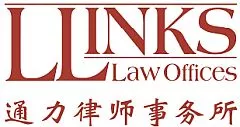- within Finance and Banking topic(s)
- within Finance and Banking topic(s)
- in United States
- with readers working within the Banking & Credit industries
- within Finance and Banking, Corporate/Commercial Law and Employment and HR topic(s)
- with Senior Company Executives, HR and Finance and Tax Executives
The China Securities Regulatory Commission ("CSRC") issued the Provisions on Code of Ethics of Securities and Futures Business Institutions and Their Staff ("COE Provisions") in June 2018, which was amended in August 2022. To implement the COE Provisions, the Asset Management Association of China ("AMAC") issued the Implementation Rules for Code of Ethics of Securities and Futures Business Institutions and Their Staff ("COE Rules") in March 2020, with a revised version released on April 11, 2025.
According to the COE Provisions and the COE Rules, "fund management institutions" subject to these regulations include fund management companies and their domestic subsidiaries engaged in fund businesses, other retail fund managers, and private fund managers. This article focuses specifically on analyzing the impact on private fund managers and outlines recommended actions for their compliance with COE regulations.
I. Internal Control Mechanism
Private fund managers shall establish internal control systems for COE management, covering pre-emptive prevention, in-process control, and post-event accountability mechanisms.
1. Organizational Structure
Private fund managers shall establish a top-down governance structure for COE management with clearly defined responsibilities:
- The director(s) determines COE management objectives and bears responsibility for the effectiveness of COE management;
- The supervisor(s) or the Audit Committee supervises the performance of COE management duties by director(s) and senior management;
- Senior management is responsible for implementing COE management objectives and takes responsibility for COE operations. The person in charge is the primary responsible person for implementing COE management duties;
- Department heads are responsible for specifically implementing COE management objectives, strengthening the management of COE practices of staff in their departments, and bearing responsibility for the implementation of COE management;
- All staff shall strictly comply with laws, regulations, self-disciplinary rules, and other normative documents, proactively identify, control, and report COE risks in their conducts, and take responsibility for their behaviors. When discovering violations of COE practices by the institution or other staff, they shall promptly escalate the issue to the Compliance and Risk Control Officer.
- A specialized department shall be designated to supervise and inspect the COE management of the institution and its staff.
2. Policy Establishment and Prohibited Activities
Private fund managers shall clearly specify COE management requirements in key policies and establish a comprehensive internal control policy for COE management covering all business areas and processes.
- Currently, the internal control policies of private fund managers cover multiple business areas, including operational risk control, information disclosure, internal transaction records, related-party transaction management, prevention of insider trading and improper benefits transfer, business segregation, personal dealing declaration by practitioners, private fund marketing and fundraising, investor suitability, policy on ensuring safety of funds, investment business control, fair trading, outsourcing business control, human resource management, financial management, contingency plans, etc. For all business activities including fundraising, sales, investment advisory, investment research and trading, unit registration, valuation and accounting, private fund managers shall strengthen COE compliance measures, e.g. by incorporating COE-prohibited activities to the policies to prevent the transfer or pursuit of improper benefits.
- The polices shall strengthen internal information confidentiality management and specifically prohibit staff from using insider information, non-public information, client information, and trade secrets for improper benefit transfer or personal gain.
|
Recommended Actions
|
II. Personnel Management
Private fund managers shall fully incorporate COE requirements into the personnel management policy, implementing COE requirements throughout all aspects of personnel management:
- Personnel recruitment: During the recruitment process, examine the COE records of prospective employees, with a focus on identifying any COE risk issues;
- On-the-job management: Include employees' COE compliance performance as essential criteria for promotion, advancement, and evaluation; organize COE training and education annually; communicate corresponding COE requirements when adjusting positions or promoting employees;
- Departure control: Conduct an assessment of the employee's COE behaviors upon their departure.
In personnel assessment, it is required to implement a veto system for personnel with significant COE issues. Furthermore, positive incentives and negative constraints shall be reinforced to guide staff in their adherence to COE standards.
|
Recommended Actions
|
III. Financial Management
Private fund managers shall strictly comply with core requirements of financial discipline:
- Establish sound financial management system
- Eliminate non-standard practices such as "off-book accounts", false expense claims, and disguised payments;
- Develop clear decision-making processes and standards for expense disbursements.
- Enhance marketing policies
- Clearly specify items, content, standards, amounts, etc., that can be listed as marketing expenses, and strictly review marketing expense disbursements;
- Regularly evaluate marketing policies and standards and make timely adjustments;
- Eliminate bribery behavior.
- Prohibit transferring improper benefits to public officials, clients, potential clients or other stakeholders in any form
|
Recommended Actions
|
IV. Training and Advocacy
1. Internal Training
As mentioned above, private fund managers shall establish a systematic COE training system covering staff at different levels to meet regulatory requirements, enhance staff's COE awareness, and reduce COE risks.
2. External Advocacy
Private fund managers shall provide guidance and publicity to shareholders, clients, potential clients, vendors, or other stakeholders. Advocacy methods can be diverse:
- When establishing cooperation relationships with clients and vendors, introduce the managers' COE philosophy and clarify COE requirements in cooperation through displaying promotional materials, sending COE notices, etc.; include COE clauses in agreements to guide clients and vendors to comply with COE regulations;
- For shareholders, explain COE policies to them and convey the managers' philosophy and requirements regarding COE practices.
|
Recommended Actions
|
V. Supervision, Inspection, and Reporting
1. Internal Inspection and Whistleblowing
Private fund managers shall establish and improve COE supervision and inspection mechanisms in accordance with the COE regulations to ensure the effective implementation of internal control for COE management. A specialized department shall be designated for daily supervision, and at least one internal inspection shall be conducted annually.
Meanwhile, private fund managers shall establish and improve internal whistleblowing mechanisms for COE risks and violations. Once a person discovers COE violations by the institution or other staff, he/she shall immediately escalate the issue to the Compliance and Risk Control Officer. At the same time, the institution shall protect the legal rights and interests of internal whistleblowers.
2. Regulatory Reporting
(1) Annual Report
Private fund managers shall submit an annual report on COE management to the CSRC local branch by April 30 each year. The report is typically prepared based on internal inspection results and includes, but is not limited to, the implementation of COE management mechanism, supervision and inspection results, findings and rectification.
(2) Interim Report
In the event of the following violations, reports shall be submitted to the CSRC local branch and AMAC within 5 working days.
- Violations to be reported to the CSRC local branch:
-
- Where violations of COE Provisions are discovered during internal inspections;
- Where regulatory personnel fail to recuse themselves when required, or engage in misconduct such as soliciting or accepting improper benefits by exploiting their position, in violation of COE regulations;
- Where shareholders, clients, or other related parties are found to be interfering with regulatory work through improper means;
- Where individuals are subject to investigations by disciplinary inspection departments or judicial authorities or subject to or disciplinary actions, administrative penalties, or criminal liability due to violations of COE regulations.
- Violations to be reported to AMAC:
-
- Where staff are found to have violated the COE Rules and internal accountability measures are taken;
- Where AMAC staff are found to have engaged in misconduct such as soliciting or accepting improper benefits by exploiting their position, in violation of COE regulations;
- Where individuals are subject to disciplinary actions, administrative penalties, or criminal liability by external disciplinary inspection departments, judicial authorities, or other departments due to violations of COE regulations.
Recommended
Actions
|
Private fund managers shall deeply understand the necessity of COE management compliance. The CSRC and the AMAC continue to reinforce industry regulations to uphold market integrity. Violations may face business restrictions, qualification cancellations, or even criminal liability. In this regulatory environment, private fund managers shall comply with COE management requirements, establish robust internal control systems, strengthen personnel training and management, and integrate compliance requirements into all business processes to ensure stable and compliant development.
Originally published April 2025.
The content of this article is intended to provide a general guide to the subject matter. Specialist advice should be sought about your specific circumstances.




